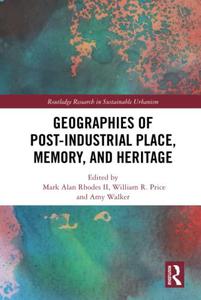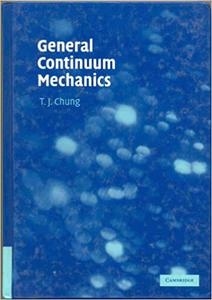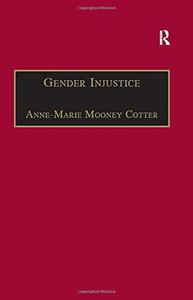 Geographies of Post-Industrial Place, Memory, and Heritage By Mark Alan Rhodes II (editor), William R. Price (editor), Amy Walker (editor)
Geographies of Post-Industrial Place, Memory, and Heritage By Mark Alan Rhodes II (editor), William R. Price (editor), Amy Walker (editor)2020 | 216 Pages | ISBN: 0367440903 | PDF | 7 MB
All industrialization is deeply rooted within the specific geographies in which it took place, and echoes of previous industrialization continue to reverberate in these places through to the modern day. This book investigates the overlap of memory and the impacts of industrialization within today's communities and the senses of place and heritagethat grew alongside and in reaction to the growth of mines, mills, and factories. The economic and social changethat accompanied the unchecked accumulation of wealth and exploitation of labor as the industrial revolution spread throughout the world has numerous lasting impacts on the socioeconomics of today. Likewise, the planet itself is now reeling. The memory and heritage of these processes reach into the communities that owe the industrial revolution their existence, but these populations also often suffered adverse impacts to their health and environment through the large-scale and rapid extraction of natural resources and production of goods. Through the themes of memory, community, and place; working post-industrial landscapes; and the de-romanticization of industrial pasts, this book examines the endurance and decline of these communities, the spatial processes of industrial byproducts, and the memory and heritage of industrialization and its legacies. While based in the traditions of geography, this collection also draws upon and will be of great interest to students and scholars of cultural anthropology, archaeology, sociology, history, architecture, civil engineering, and heritage, memory, museum, and tourism studies. Using global examples, the authors provide a uniquely geographic understanding to industrial heritage across the spaces, places, and memories of industrial development.



![S.T.A.L.K.E.R. 2 / STALKER 2: Heart of Chornobyl - Ultimate Edition (2024) [+UPDATE 23.12.2024 - v1.1.3] ElAmigos / Polska wersja językowa](https://i.postimg.cc/Zqd8RWGY/UZG8PBE.jpg)



















































![David Gilmour - Luck and Strange (2024) [FLAC]](https://i.imgur.com/everaBc.jpeg)
![Męskie Granie Orkiestra - Męskie Granie 2024 (2024) [FLAC]](https://i.imgur.com/FAyOxrM.jpeg)
![The Rolling Stones - Hackney Diamonds (2023) [FLAC]](https://i.imgur.com/wCkyyUN.jpg)
![Lady Gaga - Harlequin (2024) [FLAC]](https://i.imgur.com/dcgIA8D.jpeg)
![Natalia Kukulska - Dobrostan (2024) [FLAC]](https://i.imgur.com/bdljG3O.jpeg)
![Kaśka Sochacka - Ta druga (2024) [FLAC]](https://i.imgur.com/hORQKvn.jpeg)
![Kuba Sienkiewicz - Pani Bóg (2024) [FLAC]](https://i.imgur.com/qijCx8Z.jpeg)
![Lanberry - Heca (2024) [FLAC]](https://i.imgur.com/8P7QfeR.jpeg)
![Sara James - PLAYHOUSE (2024) [FLAC]](https://i.imgur.com/m4f8OKg.jpeg)
![Grzegorz Hyży - EPILOG (2024) [FLAC]](https://i.imgur.com/8DA2sBr.jpeg)
![Myslovitz - WIECZORAMI CHŁOPCY WYCHODZĄ NA ULICE (2024) [FLAC]](https://i.imgur.com/l9mMtIG.jpeg)
![Krzysztof Zalewski - ZGŁOWY (2024) [FLAC]](https://i.imgur.com/vh48RAc.jpeg)
![Krzysztof Cugowski - Wiek to tylko liczba (2024) [FLAC]](https://i.imgur.com/SBzgqe2.jpeg)
![Nosowska - Kasia i Błażej (2024) [FLAC]](https://i.imgur.com/mObvVXQ.jpeg)
![sanah - Pianinkowe Kaprysy (2024) [FLAC]](https://i.imgur.com/pVjjPAa.jpeg)
![Kwiat Jabłoni - Pokaz slajdów (2023) [FLAC]](https://i.imgur.com/diERHfZ.jpg)
![Robert Cichy - Spacer po Warszawie (2024) [FLAC]](https://i.imgur.com/ixleU9o.jpeg)
![Viki Gabor - Terminal 3 (2024) [FLAC]](https://i.imgur.com/Q1KCnDs.jpeg)
![Sanah - Kaprysy (2024) [FLAC]](https://i.imgur.com/71OZm4h.jpeg)
![Męskie Granie Orkiestra - Męskie Granie 2023 (2023) [FLAC]](https://i.imgur.com/U4YHo8d.jpg)




